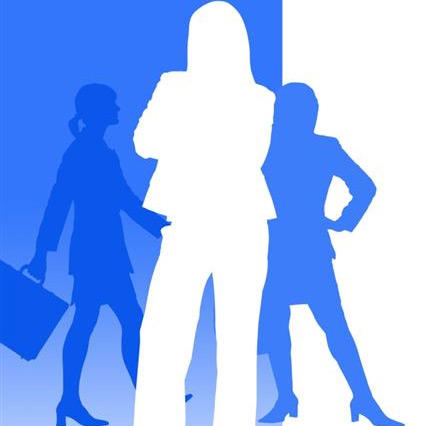Equal participation in decision-making is more important than ever for the future of the Union’s social and economic life. The 2014 elections to the European Parliament can make it or break it. Ideas from the 50-50 Equality Campaign
Women in politics:
"If you are not on the table, you're on the menu"

On 22-25 May 2014, EU citizens will be called to cast their votes for the next term of the European Parliament. There are some substantial reasons to believe that these elections will not represent a simple exercise of democratic rights, but that instead, they will have unprecedented impact on the life of the Union.
In the last thirty years, the European Parliament has consistently increased its decision-making powers, and since 2009 has become a fully-fledged co-legislator. Yet instead of increasing, voter turnout has steadily decreased election after election.
These elections will also be the first taking place in the context of on-going austerity measures, of which Europeans are weary. Five years into the recession conservatism has taken over the continent, curtailing rights and undermining economic, social and democratic progress. Even if the effects of the recession were first felt in male-dominated sectors, it has been women who have been hit by austerity measures the most. Severe cuts in public spending for child- and eldercare, maternity and parental leaves, as well as massive employment reduction in the public sector have pushed women away from public life.
Diversity in decision-making is not just a democratic issue. In recent years the business case for this view has become dominant. Indeed, former finance minister of France and now managing director of the IMF, Christine Lagarde has observed that ‘when women do better, economies do better’. There is strong evidence to show that when women are present in parliament, they influence public spending decisions to reflect their political priorities.
Indeed, in spite of general progress in national and European elections the female gender is still under-represented. In spite of the progress made, women represent still a minority in the EU Parliament. Currently, 35% of all MEPs are women but vast differences occur between Member States: in 2013 there were no female MEPs from Malta, but 8 out of 13 Finnish MEPs were women (representing 67% of all Finnish parliamentarians) (Source: European Parliament). In the executive, the situation is slightly better with 9 out of 20 European Commissioners women (source: European Commission).
There are structural and cultural barriers hindering a more diverse participation in elections, says Petra Meier, full Professors of Politics and Head of the Department of Political Science of the University of Antwerp during the “My MEP is like me?! Gender Equality and Diversity Seminar in European Political Life” organised by the Women’s Lobby in the European Parliament on 18 February 2014.
Professor Meier believes structural barriers can at least partly be overcome by gender and diversity quotas. Currently there is no quota system for elections to the European Parliament, only 8 European Countries have legislated quotas for national elections and 14 have some sort of voluntary quota at party level. Meier warns that not all quota systems are created equal: a zipper system, whereby men and women alternate on the electoral lists, is more effective than a plain quota where there is no obligation to put women candidates on the top of the list.
Cultural barriers are more difficult to tackle, because they concern habits, norms, and expectations of how ideal candidates should be and behave – which are deeply gendered. Women do not usually belong to the circles where political parties recruit future candidates, and often do not receive training on how to become successful candidates.
The 50/50 equality campaign was launched to tackle this imbalance. It aims to promote the equal representation of women and men in all European institutions and to put issues of women’s rights and gender equality high on the EU political agenda. It consists of three elements: an awareness-raising campaign, a joint declaration on equal representation of men and women and a European Political Mentoring Programme to empower women from minority backgrounds who are planning on participating in the next elections to the European Parliament.
The campaign is led by the European Women’s Lobby, sponsored by the European Commission and supported by members of the 5 largest European Political Parties currently represented in the European Parliament (the European Popular Party, Socialists and Democrats, the Alliance of Liberals and Democrats for Europe , the Greens and the European United Left - Nordic Green Left). The campaign has gained political momentum and is currently supported by high profile politicians, such as Commissioners Reding and Georgieva.
Women’s current under-representation in political life means that women’s issues are not in the political agenda. “If you're not at the table, you're on the menu” is a popular saying in US politics. If Europe wants to build a strong, social, cohesive future where the needs of both women and men are taken into account, it ….needs to ensure that its representative bodies are indeed reflective of the diversity of the people and communities they represent. This can be achieved through well structured quota systems and other forms of affirmative action to ensure that groups including women, ethnic minorities and members of the LGBT communities are not excluded from the representative bodies which govern them.




